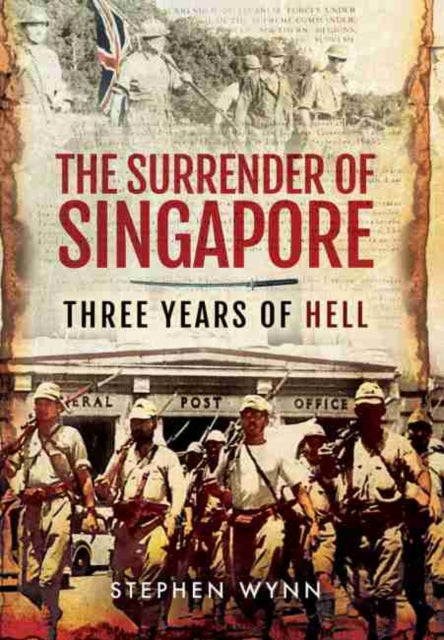Surrender of Singapore: Three Years of Hell 1942-45
Usually shipped within 24 hours
UK deliveries from £4.95
Delivery & Returns
Delivery & Returns
We use the Royal Mail, DHL Express or UPS for our customers. For UK addresses, deliveries under 10kg are a standard £4.95 via Royal Mail Tracked 48 Service. For orders over 10kg and overseas customers, postage is calculated for you at checkout once you have entered your postal address. This price, does not include any potential custom charges that may apply, depending on the product or destination, as every country has very different import duties / taxes. Online exclusive products (such as trainers) will be delivered to you directly from the printer, separate from other items in your order, but your postage fee covers ALL items in your order.
If you are unhappy with your purchase, please email shop@tankmuseum.org within fourteen (14) working days of receiving your goods, and return it to us at the address below, in its original condition, unopened (with any seals and shrink-wrap intact) and we will issue you a full refund or replace it. Goods must be returned at your own cost. If the item is faulty, you do not need to return it, we will send you a replacement free of charge.
Description
Description
By Stephen Wynn
Hardback
Until the late 1930s, Singapore was noted as a popular stop-off point for wealthy European travellers on their way to countries such as Australia and New Zealand. The outbreak of World War II changed all of that.
Major General William Dobbie, who served as the General Officer Commanding Malaya between 8 November 1935 and August 1939, warned that Singapore could be conquered by the Japanese; his concerns went unheeded. Many factors led to the fall of Singapore.
These included the arrogance of some senior British military personnel and politicians; a misconception that Japanese soldiers were inferior to their American and Commonwealth counterparts; a belief that Japan would not militarily engage both the United States and Britain at the same time; and the Allies' perception that victory in Europe took priority over defeating the Japanese throughout Asia and the Pacific. Singapore fell to the Japanese in 1942 and was controlled by them for the next three years. During this time Chinese civilians and Commonwealth soldiers were murdered in such incidents as the Sook Ching massacre and the Burma Railway death march.
Winston Churchill decided against a public inquiry into the circumstances surrounding the fall of this bastion of empire, and no subsequent British government has seen fit to change that decision. This remarkable book tells the fascinating and largely forgotten story of the fall of Singapore.








